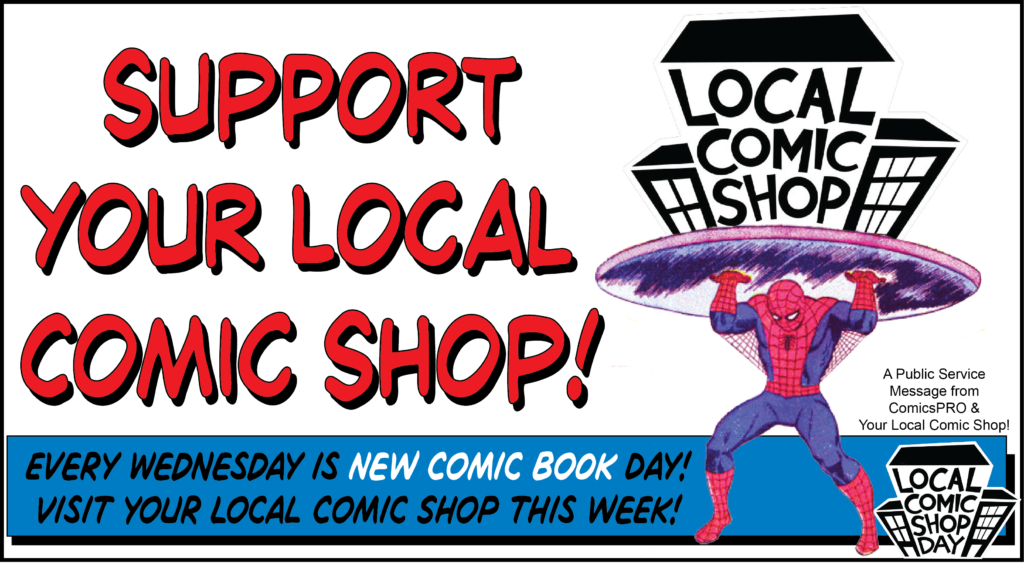
We’re all here to push the comics specialty market forward.
Support Your Local Comic Shop isn’t about charity, though. At this meeting, it’s about the business of comics. And it’s clear some evolutionary changes are happening… and it’s the job of every dedicated comics retailer to not only chart a better course for your own shops, but consider how your actions affect the larger market.
We’re in this together— and as one of the old guys in the room, I know we need the energy, ideas, dedication and integrity of everyone here to make this market healthier for all of us— retailers, creators, publishers, fans, distributors.
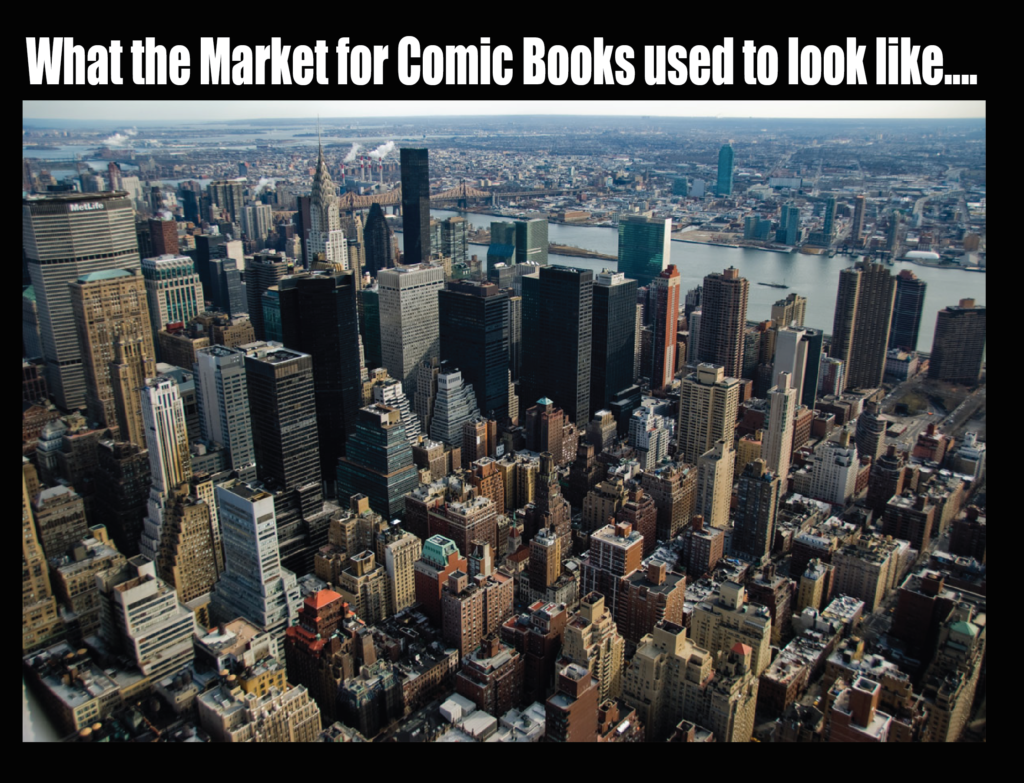
A quick look back at the olden days.
So much has changed since this business was not just primarily based in Manhattan, but also looked like Manhattan. Lots of good selling comics, each its own skyscraper. The ones that didn’t sell at least a hundred thousand copies were cancelled.
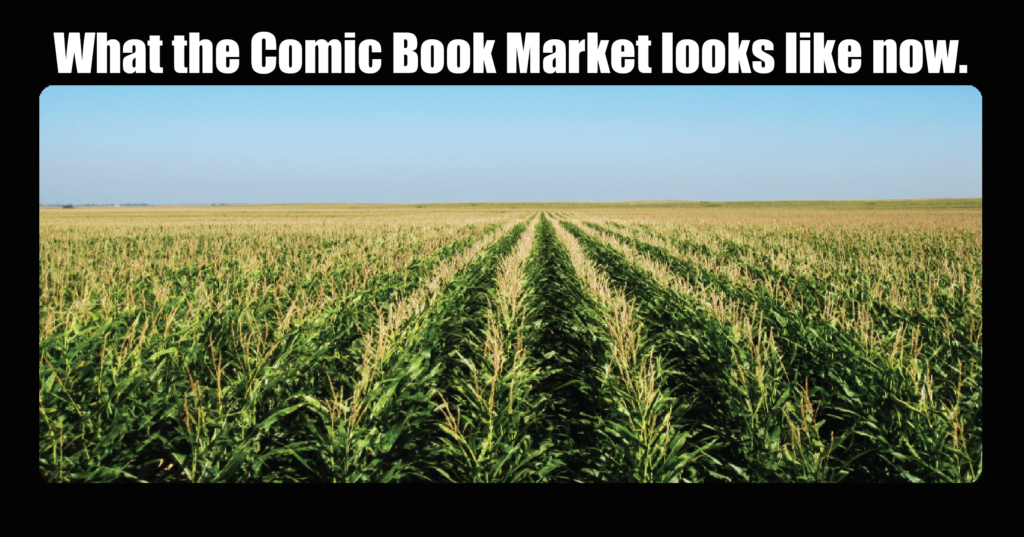
These days our market looks like Nebraska. So many titles, like cornstalks all vying for their share of sunshine. It’s a real rarity when a new title actually sticks up above the rest of the infinite cornfield.
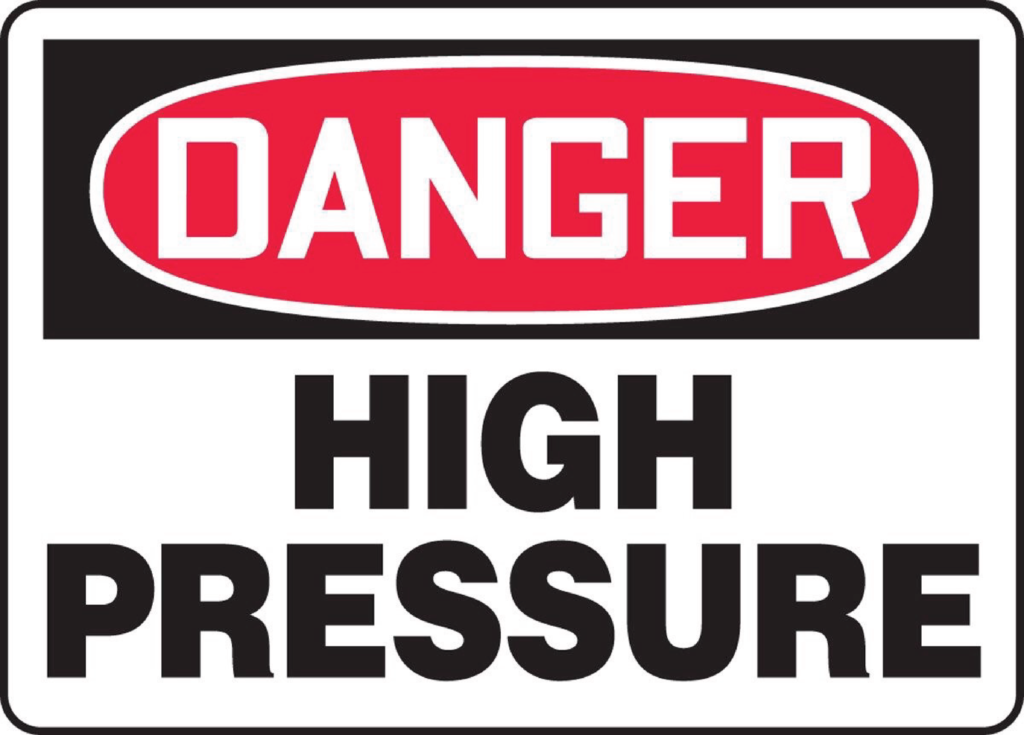
What that’s led to is a market under intense pressure. Our corporate publisher colleagues are seeing years of low to no growth in the specialty market, and having to answer to their bosses, they hunt for new markets, new sales channels: digital, streaming, big box retailers, other media. Comic sales are a drop in the bucket for companies with licensed marketable characters. An essential element, for sure.
Creators also have many more markets to sell their services. We have lots of talent that once did top selling comics now working in other media. And if not that, some of them are now in essence retailers, artists doing their own variant covers, selling them direct to consumers…and competing against retailers.
The truth is, all the walls are down in comics. Retailers are scrambling to find sales in other lines, often paying more attention to the flood of Funko emails than they are to what’s happening in comic books. Compound that with so many more titles than ever before and each with a seemingly ridiculous string of variant editions— some with major ordering hoops attached…
On the operational level, retailers are being nickel and dimed to death. I am scrupulous about retorting every damage, shortage and overage every week. I’m not crazy mint-meister, thinking every comic needs to be delivered in 9.8 condition. But even still, the time it takes to report onesie-twosie issues with my orders is definitely not a profitable use of my time. And it keeps me and my staff from more time with customers, more time to know what it is we’re selling. All these minor irritations of running the business do cause something of a loss of enthusiasm.
In many ways, retailers have become so skittish about new product that if we don’t hear from a customer of two with an actual preorder, it’ll never get space on our racks. The more titles there are, the less predictable our sell-through.
We have an incredibly wide market, but as of right now, it is way too flat. More titles, more items to keep track of, more details about more things… and every day there are announcements of new things on the horizon, down the road. In many cases, I believe publishers are selling tomorrow’s comics at the expense of today’s sales. That’s hype of the two birds in the bush for the reality of the one bird in the hand. For retailers, if we hit 10-15% pre-tax profit margins, we’re doing well. But that means one unsold copy of a five copy order is unprofitable…and one unsold copy of a ten copy order is more flat-lining.
When I read about suggestions from some retailers to other retailers saying that a new titles should be “subs plus one” or something similar, it reminds me of the adage I was taught back in the ’80s when I got into this business:
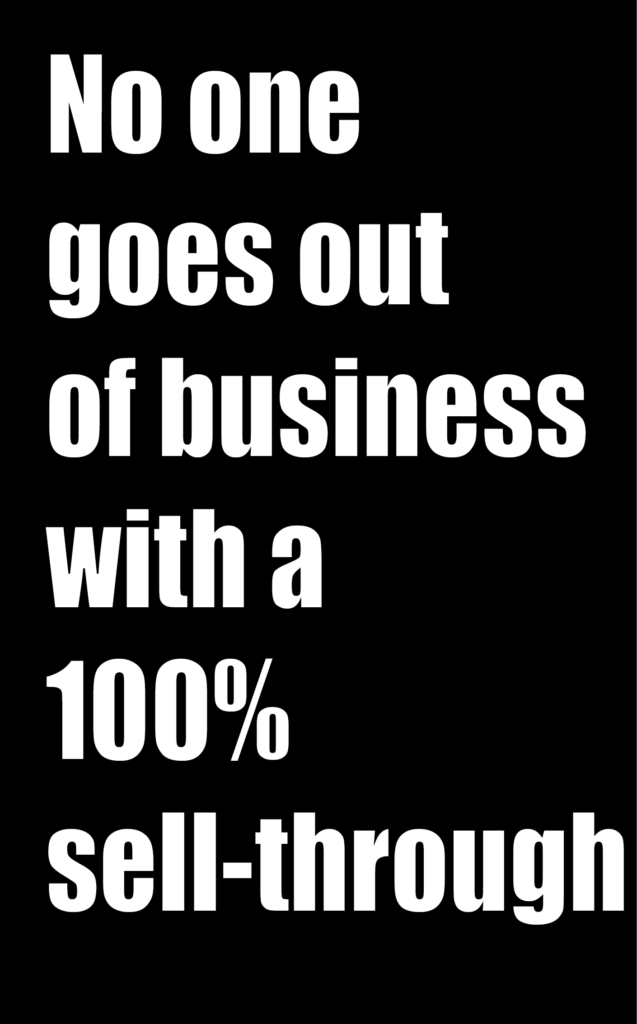
In my thirty years in comics retail, I’ve heard this adage over and over again:
“No one ever went out of business with a 100% sell through.”
But there’s a flip side to that… and I’m hoping retailers will take it to heart this week and take it back to your store’s for next week and beyond:
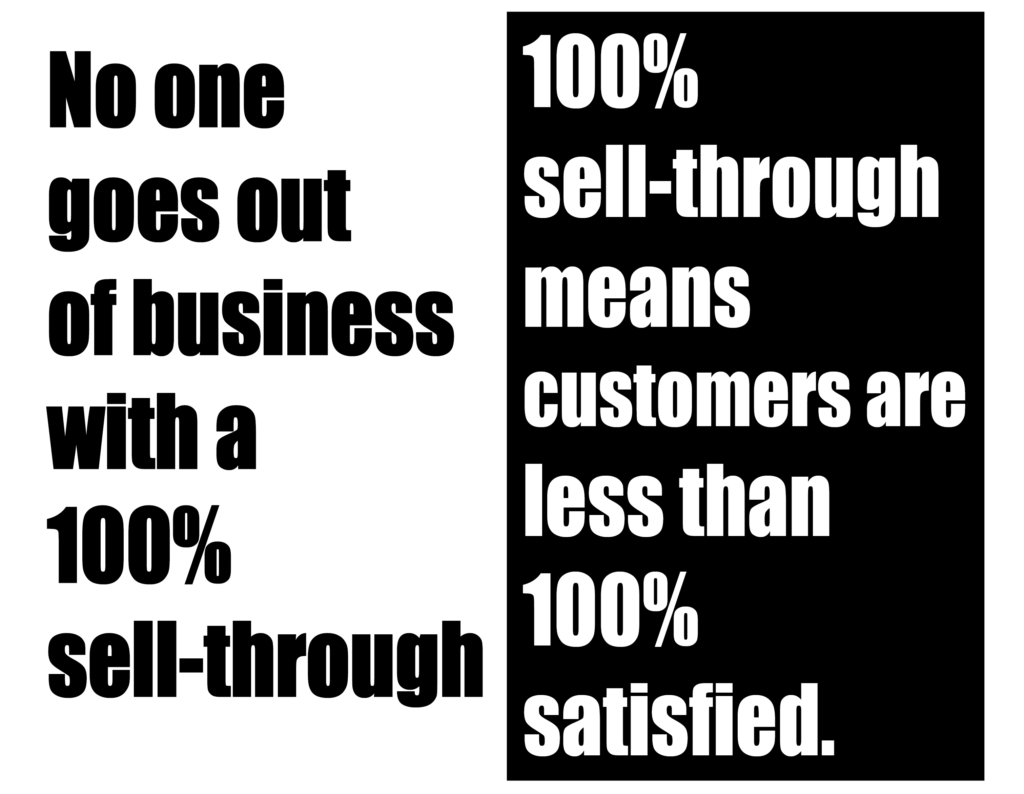
“100 percent sell through means customers are less than 100% satisfied.”
By turning our shops into glorified and geeky Diamond Previews showrooms, where we sell more out of subscription boxes than we do off our comic racks, we are all responsible for the flattening and the widening of this market.
And with that, we are coming nowhere close to maximizing sales. We have to do better. That needs to be our goal— maxing our sales, growing our market while aiming for 100 percent consumer satisfaction.
The thing is— this is a Golden Age for comics.
I always dreamed about a market like this when there would be a comic book for every reader. I just never thought it would be a different comic book for every one of those readers.
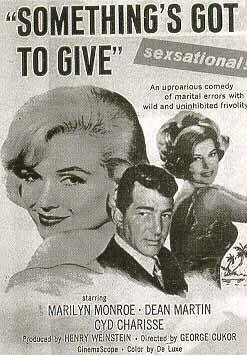
As some of you may have read from me a few months ago… something’s got to give.
For the creators in the room, keep on doing the comics that thrill you… but also keep in mind sales are just as much a part of your job as they are for us. Give us solid reasons WHY we need to stock your comics, not just for the few subscribers we might have, but WHY do your series deserve display space in our shops? What makes them unique in the market? If your answer includes the word dystopian, just know that you’ve lost me.
I give every new self-publisher a test when they visit my shop: Look at the sea of comics and graphic novels I have for sale here. Now tell me, which one do I remove to make space for yours? What are you doing to help me make your product jump off the shelf and into someone’s stack to purchase?
This market needs a new way to higher sales….and it might be an old way, just revised. Expanding on the calls for adding returnability, with thanks to publishers like Boom, Image, Vault, Valiant and IDW— pardon me for leaving anyone out— I want to propose something.
Over the years, when talking with publisher reps, returns on late and mis-solicited titles or titles with returns already built in— the number that keeps coming back when retailers are able to return 100% of a given title— the average actually returned is in the 10 percent range. If I’m way off or things have drastically changed, maybe that number is somewhat higher.
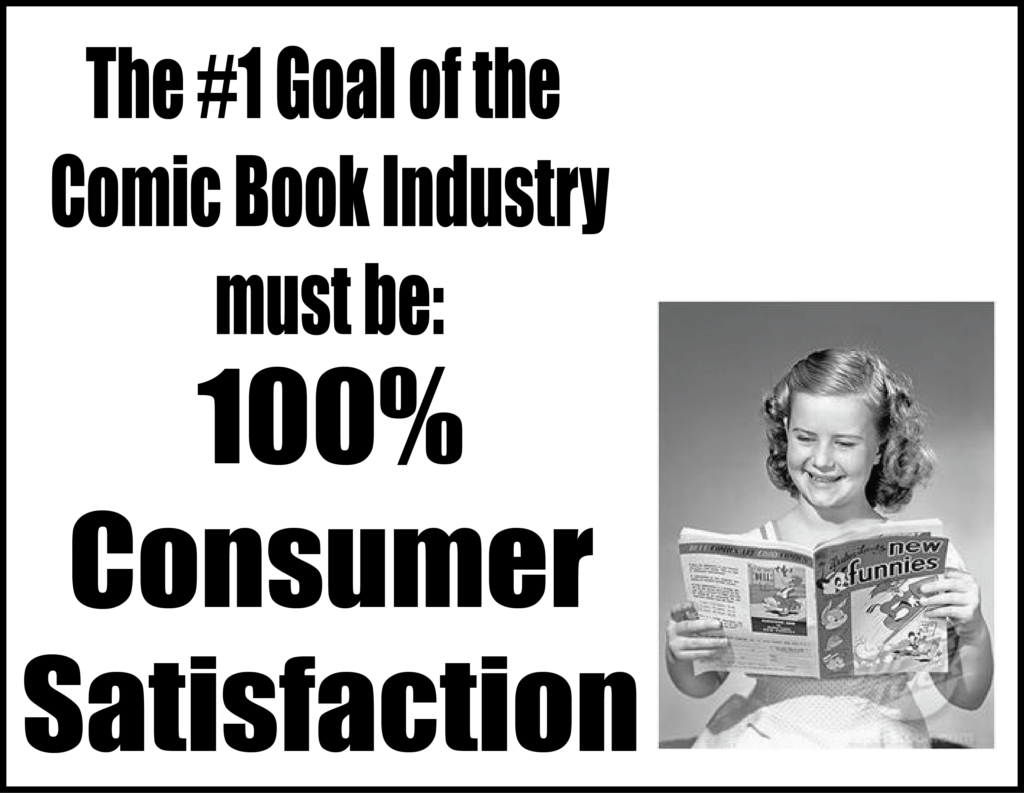
With 100% consumer satisfaction the goal, it is reasonable to expand returnability.
I propose starting with a pilot program:
• Take several publishers willing to help us push this market to better sales, add to that a group of retailers from accounts of different sizes and locations— but ALL of them must be within their Diamond terms. We need responsible and hopefully profitable retailers here.
• Retailers agree to have space on the racks for the publishers involved.
• Make all first issues 100% returnable.
• Second and third issues 50% returnable…and all subsequent issues 25% returnable.
Run the pilot program for a specified time— three months, six months, then look at each retailer’s sales for each participating publisher before the program and again at the close of the trial period.
What’s the worst that could happen? Maybe small increases in returns from participating shops? Is the risk of 10-20% in returns worth the chance to see significant sales increases?
Publishers want retailers to order more aggressively. The way to do that is to mitigate our risk. We have to get back to taking care of the comic book fans who have been so faithful for so long while also allowing retailers to have enough stock to entice more people to become regular comic book readers.
There is so much more to discuss here, but my time is limited.
The bottom line is we need strong decisive action now to push the comics market into new growth.
We’ve all done so well coming together over the last 18 years to celebrate Free Comic Book Day… and for that I thank you all.
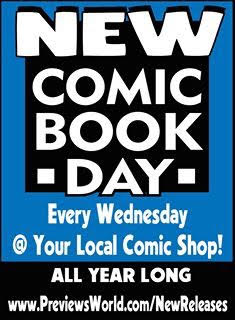
We’re overdue in making the rest of the year bigger and better for all of us.
We all want better than where we’re at right now. So let’s get to it.
Who’s with me?
©2019 Joe Field
